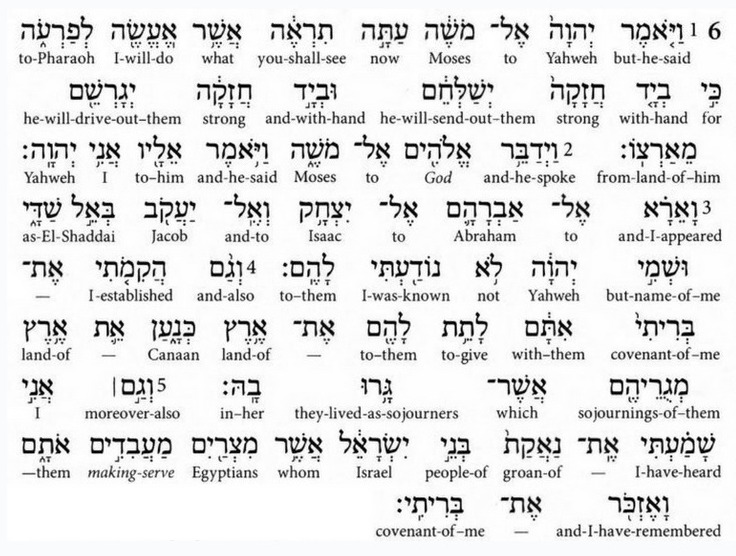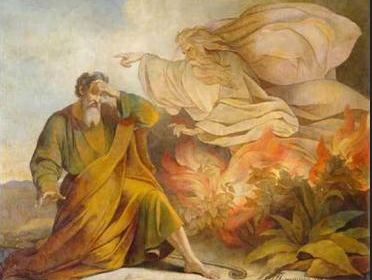Welcome to my Hebrew reading & language series.
Exodus 6:1-5
We are starting another new chapter today after the doubt and disappointment Moshe (Moses) expressed to the Creator. This is God's response to Moshe in our reading today.
He basically tells Moshe wait and see what he will do to Fare'oh (Pharaoh). He then states the end result of the conflict, which is common in Hebrew texts, that Fare'oh will send them out of Mitsraim (Egypt).
Then he goes into more detail on what exactly will take place to accomplish that end result. He starts by affirming that he is the same God that met with the forefathers, not as YHVH, but as El Shaddai (The Almighty) because they did not know "My Name" at the time. This point can be lost in the mix of words like "Lord" and "God" that are commonly used in order to avoid saying Ha Shem (The Name).
Then he speaks of "B'ree-tee" (my covenant) with them and that he promised to give them the land of Cana'an (Canaan). Then also that he has heard their groans about the Mitsraim (Egyptians) who are Ma'abidim otam (making them serve). I have not run across the word for "Slave" in the Hebrew texts. Look at the text below, the bottom three words on the left, and you will see for yourself. That is another point that gets missed in translation. Even though we call people who are forced to serve slaves, the the word doesn't appear in Hebrew as far as I am aware.
Today's reading
English
But the Lord said to Moses, "Now you shall see what I will do to Pharaoh; for with a strong hand he will send them out, and with a strong hand he will drive them out of his land."
God spoke to Moses and said to him, "I am the Lord. appeared to Abraham, to Isaac, and to Jacob, as God Almighty, but by my name the Lord I did not make myself known to them. I also established my covenant with them to give them the land of Canaan, the land in which they lived as sojourners. Moreover, I have heard the groaning of the people of Israel whom the Egyptians hold as slaves, and I have remembered my covenant.
Hebrew

Next week the promise is renewed...
Info on each letter starting at the beginning
If you are just starting, my lessons are all here starting at Alef, adding vowels (the dots and lines) as we go. I explain the meaning of each letter and its numerical value. Just go to my blog and scroll to the bottom or click here
Get your Hebrew Bible now!
Click here to obtain the book we are using. It is a free download or browser usable.
Thanks for reading.


